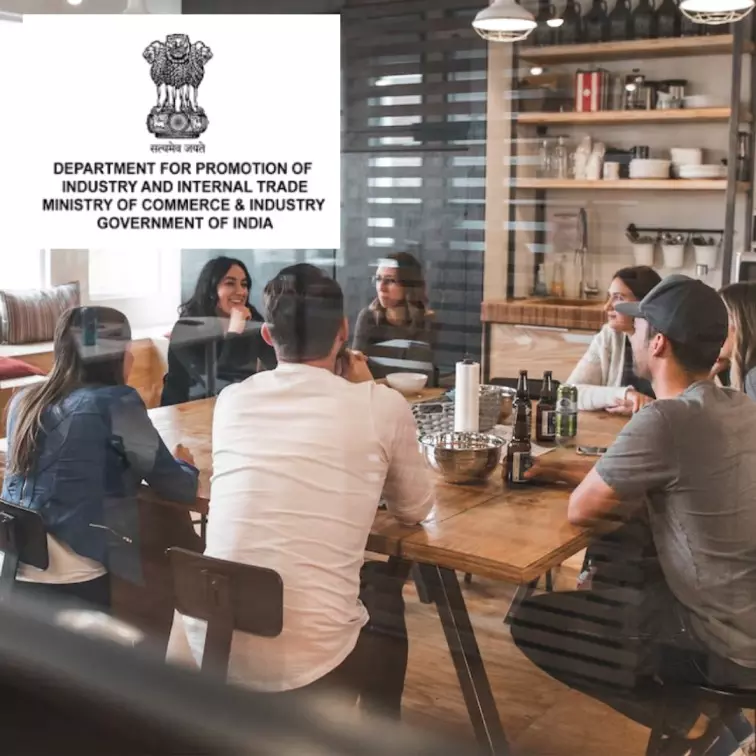
Image Credits: Unsplash, Facebook/DPIIT
Over 50% Of Govt-Recognised Startups Centred In Five States, Maharashtra Tops List
Writer: Deepthi Rao
She is a postgraduate student pursuing Multimedia Journalism at Christ Deemed to be University. She believes in the power of storytelling and truth. "Do it with passion or not at all."
India, 19 Dec 2022 12:46 PM GMT | Updated 20 Dec 2022 7:02 AM GMT
Editor : Jayali Wavhal |
She writes about gender issues, human interest, and environment.
Creatives : Jayali Wavhal
She writes about gender issues, human interest, and environment.
With 15,571 government-recognized startups, Maharashtra takes the top spot, whereas Karnataka, Delhi, Uttar Pradesh, and Gujarat follow with 9,904; 9,588; 7,719; and 5,877, respectively. Data reveals that at least one startup exists in every state and union territory.
Almost 58 per cent of all government-recognized startups in the country are concentrated in just five states - Maharashtra, Karnataka, Delhi, Gujarat, and Uttar Pradesh, per a Lok Sabha response from December 7, 2022. Additionally, the data showed that every Indian state and union territory has at least one startup, however, Maharashtra topped the list with most startups.
Concentration Of Startups
As of November 30, 2022, the government has 84,012 startups recognised under the Department for Promotion of Industry and Internal Trade (DPIIT). Of these, almost 60 per cent startups are based in states of Maharashtra, Karnataka, Delhi, Gujarat, and Uttar Pradesh.
With 15,571 government-recognized startups, Maharashtra takes the top spot, whereas states like Karnataka, Delhi, Uttar Pradesh, and Gujarat follow with 9,904; 9,588; 7,719; and 5,877, respectively, reported Business Standard. Data also reveals that at least one DPIIT-recognised startup exists in every state and union territory.
Speaking of direct employment by government-recognised startups, Maharashtra reports the largest number of -163,451. It is followed by Karnataka and Delhi.
While elaborating on the concentration of startups across the country, Dr Ritesh Malik, Leading Investor & Entrepreneur, told The Logical Indian, "Globally, almost all the startup hubs in the world are localised in silos. For example, the United States has Bay Area in San Francisco, and Israel has Tel Aviv. The concentration of capital, talent & human resource is a common attribute of a technology ecosystem. India is still more diversified, wherein five vibrant ecosystems are doing very well."
He added that until micro-entrepreneurship is democratised & diversified across all the metros, tier 1, 2, and 3 cities, and villages, India will not truly become self-reliant. "While technology startup ecosystems can be siloed, micro-entrepreneurship opportunities need to be democratised to the last man/woman standing", he said.
Government Fosters Startups
The Start-up India programme was introduced by the central government on January 16, 2016, to create a robust ecosystem for encouraging the growth of innovation and startups in the nation. Of India's 36 States and Union Territories, 31 have a specific startup policy. Ladakh and Arunachal Pradesh are two states that lack a particular policy.
The startup policies were created following the start of the Startup India programme in 2016. These policies are essential because they facilitate a conducive environment for startups by offering ease of norms and incentives. By providing benefits to important startup players such as incubators, colleges like the IITs, and other higher education institutions, many of these policies discuss the overall growth of the startup ecosystem in the nation.
Action Plan for Start-up India provides the groundwork for government assistance to develop a thriving startup ecosystem in the nation. It covers topics like 'Simplification and handholding', 'Funding support and incentives', and 'Industry-academia partnership and incubation'.
The government enforced the Fund of Funds for Startups (FFS) and the Start-up India Seed Fund Scheme (SISFS) as part of the Start-up India Initiative to give financial assistance at different points in a start-business up's cycle. Both these schemes are implemented pan-India and are reported to be helping startup owners gain a footing in their professional field.
Also Read: Huddle Global: Asia's Largest Tech Conclave In Kerala Attracts Investors, Startups From Worldwide
 All section
All section













